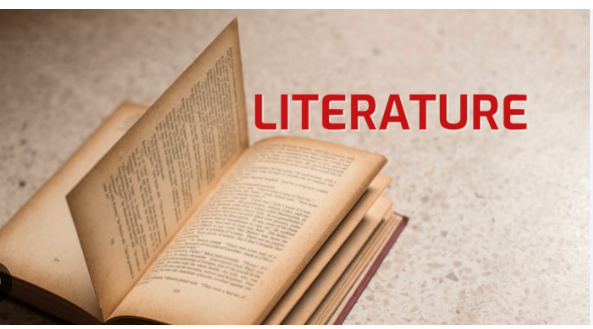Title: The Significance of Literature in Enhancing Vocabulary: A Crucial Component of Class 12 Education
Introduction:
Literature, with its rich tapestry of language and storytelling, serves as a cornerstone of education, particularly in the context of Class 12 curriculum. Beyond its aesthetic appeal, literature plays a pivotal role in enhancing students' vocabulary, critical thinking skills, and cultural literacy. In this article, we will explore the importance of literature in expanding vocabulary and its relevance in the academic journey of Class 12 students.
Expanding Vocabulary:
One of the primary benefits of studying literature is its capacity to expose students to a diverse range of vocabulary. Through reading and analyzing literary texts, students encounter words and expressions that are often beyond the scope of everyday conversation. From archaic language in Shakespearean plays to sophisticated vocabulary in modernist novels, literature offers a treasure trove of linguistic richness waiting to be explored. This exposure to varied vocabulary not only expands students' lexicon but also enhances their ability to comprehend and articulate complex ideas.
Cognitive Development:
Engaging with literature stimulates cognitive processes such as critical thinking, analysis, and interpretation. As students grapple with intricate plot structures, character motivations, and thematic elements, they are prompted to analyze textual evidence, draw inferences, and formulate coherent arguments. This intellectual engagement not only deepens their understanding of the text but also hones their analytical skills, fostering a more nuanced approach to problem-solving and interpretation. Moreover, the cognitive challenges posed by literature contribute to the development of higher-order thinking skills, preparing students for academic success and lifelong learning.
Cultural Literacy and Empathy:
Literature serves as a window into different cultures, historical periods, and human experiences, fostering empathy and cultural literacy among students. By exploring diverse literary works from around the world, students gain insight into the complexities of human nature, societal dynamics, and universal themes such as love, loss, and identity. This exposure to diverse perspectives broadens students' worldview, cultivates empathy towards others, and fosters a deeper appreciation for the complexities of the human condition. Furthermore, studying literature enables students to critically examine social issues, challenge stereotypes, and engage in meaningful discussions about equity, diversity, and inclusion.
Language Proficiency and Communication Skills:
The study of literature plays a crucial role in honing students' language proficiency and communication skills. By encountering a wide range of literary genres, styles, and rhetorical devices, students develop a deeper understanding of language use and its impact on meaning and interpretation. Moreover, analyzing and discussing literature in classroom settings enhances students' ability to articulate their thoughts, express themselves coherently, and engage in meaningful dialogue with peers and teachers. These communication skills are invaluable not only in academic contexts but also in professional and personal endeavors, empowering students to become effective communicators and lifelong learners.
Conclusion:
In conclusion, the study of literature is essential for enhancing vocabulary, critical thinking skills, and cultural literacy among Class 12 students. By immersing themselves in the world of literature, students expand their vocabulary, deepen their understanding of human experiences, and develop essential cognitive and communication skills. As educators and learners, it is imperative to recognize the significance of literature in shaping students' intellectual growth, fostering empathy, and nurturing a lifelong love of learning. By embracing literature as a vital component of education, we empower students to navigate the complexities of the world with curiosity, empathy, and linguistic dexterity.

